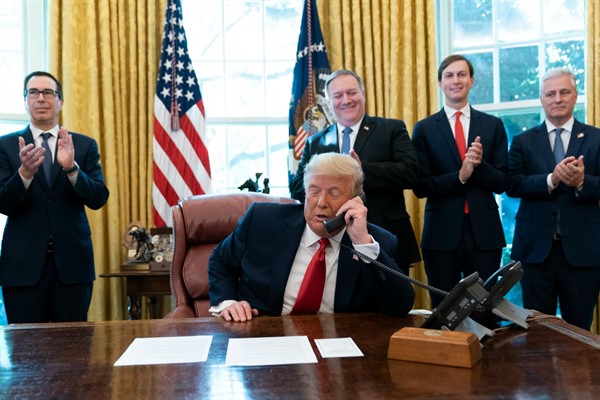Editor’s Note: Welcome to WPR’s new weekly newsletter, Middle East Memo. Managing Editor Frederick Deknatel highlights a major unfolding story in the Middle East, while curating some of the best local news and analysis from the region. Subscribers can adjust their newsletter settings to receive Middle East Memo by email every week.
When is a peace deal not all it’s chalked up to be, even if it ends a formal state of hostility? The Trump administration’s race to pressure Arab countries to normalize their ties with Israel, goaded by promises of American financial assistance and weapons, isn’t really changing the Middle East, despite the White House’s own publicity and some breathless, boosterish commentary. But these U.S.-brokered normalization agreements should change some longstanding expectations of what peace in the region, such as it is, would really mean.
President Donald Trump’s announcement last Friday that Sudan and Israel had agreed to begin normalizing their relations follows the surprising news in August that first the United Arab Emirates and then Bahrain would recognize Israel. There are still many unanswered questions about Sudan’s move, given how few details have been released about this latest détente. There are clear differences from those two wealthy Gulf countries, which unlike Sudan were never formally at war with Israel. The UAE and Bahrain were bit players in the longstanding Israeli-Palestinian conflict and, united by a mutual fear of Iran, had developed their own ties with Israel in recent years that were hardly a secret. Unlike the UAE and Bahrain, Sudan is reportedly not establishing full diplomatic relations with Israel, at least not yet. Of course, that didn’t dampen Trump’s hype of the deal as a “HUGE win” and a “historic peace agreement.”

